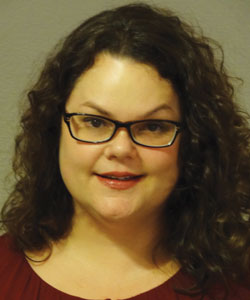Karen M. Rodrigue
 The University of Texas at Dallas
The University of Texas at Dallas
http://vitallongevity.utdallas.edu/directory/view/category/faculty/karen-rodrigue
What does your research focus on?
My research focuses on how age-related changes in the brain relate to the cognitive decline that we observe over the lifespan in healthy aging. We are particularly interested in how genetic and health factors work independently and interactively to modify neurocognitive aging. We use a wide variety of cognitive measures and structural and functional MRI, as well as PET amyloid imaging in our research.
What drew you to this line of research and why is it exciting to you?
The human brain is intrinsically fascinating. We are our brains, in a general sense. Understanding how the brain works allows us to function well, and knowledge of how it can change to impair our ability to think and solve problems as we age is critical. The most exciting aspect of this area for me is studying what factors underlie the individual differences in aging. Older adults show a significant range of cognitive performance. If we can identify the major factors that influence successful and unsuccessful aging, depending on the nature of those factors, we may be able to use this knowledge to actively promote healthy aging in people who may otherwise show clinically significant decline.
Who were/are your mentors or scientific influences?
My postdoctoral advisor, Dr. Denise C. Park, guided me through the process of writing a successful grant proposal, which was an enormously beneficial skill to acquire prior to beginning a tenure-track faculty position. Dr. Michael Devous, at UT Southwestern Medical center, trained me in PET amyloid imaging, which has become an important component of my work. I am most influenced by my PhD mentor, Dr. Naftali Raz of Wayne State University at the Institute of Gerontology in Detroit, who thoroughly prepared me for a career in research. The excellent training in neuroimaging, cognitive aging and statistical analysis is what has allowed me to be successful in my subsequent work. I am also grateful to my undergraduate professors at Loyola University in New Orleans, who gave me a solid foundation in writing skills and critical thinking to build upon, as well as helping me find my academic career path in the psychological sciences.
What’s your future research agenda?
It is my hope to make significant contributions to the longitudinal study of brain aging, which is critical for studying true change (vs. age differences) and understanding the temporal order of the age-related decline in a variety of brain and cognitive modalities. I plan to continue working on understanding the mechanisms and modifiers of brain aging in healthy adults and investigate how those brain changes impact cognition as we grow older.
What publication are you most proud of?
Rodrigue, K. M., Rieck, J. R., Kennedy, K. M., Devous, M. D., Diaz-Arrastia, R., & Park, D.C. (2013). Risk factors for β-amyloid deposition in healthy aging: Vascular and genetic effects. Archives of Neurology.





APS regularly opens certain online articles for discussion on our website. Effective February 2021, you must be a logged-in APS member to post comments. By posting a comment, you agree to our Community Guidelines and the display of your profile information, including your name and affiliation. Any opinions, findings, conclusions, or recommendations present in article comments are those of the writers and do not necessarily reflect the views of APS or the article’s author. For more information, please see our Community Guidelines.
Please login with your APS account to comment.